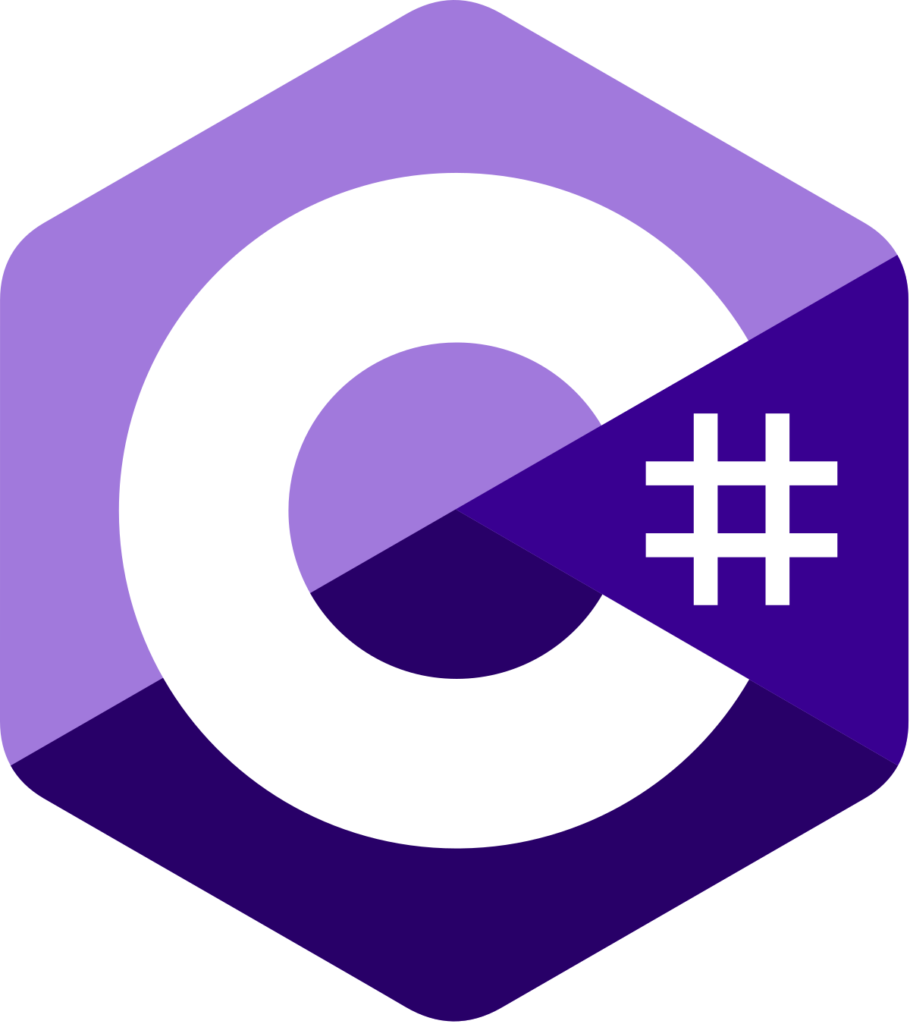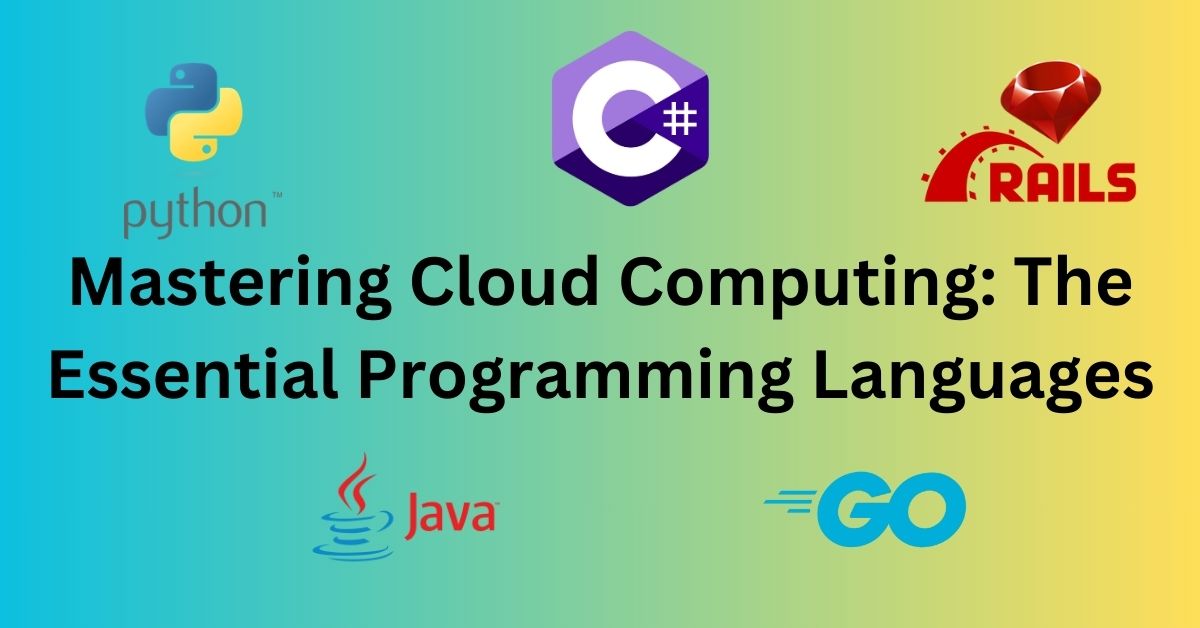|
|
In today’s digital age, cloud computing has become the backbone of technological innovation. From powering e-commerce platforms to enabling sophisticated data analytics, the cloud has revolutionized how businesses operate. As the demand for cloud solutions continues to soar, the role of cloud developers has become increasingly vital. These professionals are responsible for creating and maintaining cloud-based applications and services, making them indispensable in the tech industry.
If you aspire to become a developer, mastering the right cloud programming languages is essential. These languages serve as the building blocks for developing robust and scalable cloud solutions. Let’s explore the top five languages for budding cloud developers on your journey to proficiency.
1. Python

Python is a versatile, high-level language that’s widely used in cloud computing. It’s known for its simplicity, readability. Python’s robust ecosystem make it an excellent choice for building and deploying cloud-based applications. It’s a great language for coding APIs, scripting, automating infrastructure tasks, and processing large datasets.
Python’s popularity in data science and machine learning is another perk, making it a great choice for cloud projects that involve these fields. Python also has a massive library of packages that make it easy to develop cloud applications on all major cloud platforms like Amazon Web Services (AWS), Azure and Google Cloud Platform (GCP).
Salary for Python Developers: According to ZipRecruiter the salary for Python Developers range from $141K to $156K per year in the USA
2. Java

Java has long been a stalwart in enterprise software development, and its relevance in cloud computing remains undiminished. Java’s robustness, platform independence, and extensive ecosystem of tools and libraries make it well-suited for building enterprise-grade cloud applications.
Java is also a very secure language, which is important for cloud computing. Frameworks like Spring Boot streamline the development process, enabling developers to create cloud-native applications with ease.
Salary for Python Developers: According to Indeed the salary for Java Developers range from $67K to $126K per year in the USA, with an average of $92K per year.
3. C#

C# is a high-level, object-oriented language developed by Microsoft. It was created to be a modern language that is simple to use and easy to learn, while still being powerful enough to meet the demands of modern development. C# is used in a variety of applications, including Windows desktop applications, games, websites, and cloud services.
One of the best reasons to learn C# is that it is the primary language used in the Microsoft .NET framework. This means that if you want to develop applications for the Windows operating system, or if you want to work with Microsoft’s cloud platform, Azure, then you will need to know C#.
Salary for C# Developers: According to Salary.com, the average C# Programmer salary in the United States is $114,248 per year. The salary range typically falls between $102,406 and $125,929 per year.
4. Go (Golang)

Go, developed by Google, has emerged as a promising language for cloud development. Its focus on concurrency, high performance, and scalability makes it well-suited for building cloud-native applications.
Go provides built-in support for concurrency and offers lightweight goroutines (lightweight threads) for efficient handling of concurrent programming tasks. This feature is particularly beneficial for developing scalable cloud applications.
Go is natively supported by Google Cloud Platform (GCP) and has gained traction in the cloud computing community. Its simplicity and performance advantages make it a compelling choice for cloud-based applications.
Salary for Go Developers: According for Talent.com, the average Go developer salary in the USA is $132,123 per year. Entry level positions start at $115,063 per year while most experienced workers make up to $165,750 per year.
5. Ruby

Ruby is a powerful and versatile object-oriented programming language that has been around for over three decades. Ruby has since become one of the most popular programming languages in the world, with a large and active community of developers. One of the key features of Ruby is its simplicity and elegance.
Ruby’s versatility enables developers to tackle a myriad of tasks, especially excelling in web development, notably through the renowned Ruby on Rails framework. Additionally, Ruby proves ideal for cloud development, facilitating the creation and management of web applications and services.
In addition to its strengths in web development and cloud development, Ruby is also a great language for a variety of other tasks, including Data analysis, Machine learning, Natural language processing, Game development, Mobile development.
Salary for Ruby Developers: According for Indeed.com, the average salary for a ruby developer is $112,767 per year in the United States.
Becoming a Cloud Developer: It’s Not Just About Languages
Becoming a cloud developer is as much about the languages you learn as it is about learning how to use the cloud. You could be a master in Python, but if you haven’t learned the basics of cloud architecture, it’s going to be hard to sell yourself as a cloud developer.
In addition to learning languages, you should also be familiar with the basics of cloud architecture. This includes learning about things like cloud storage, cloud security, and cloud computing. If you’re already familiar with cloud architecture, you’ll have a much easier time learning how to code for the cloud.
Cloud Developer vs. Cloud Engineer: What’s the Difference?
With the rise of cloud computing, the line between cloud developers and cloud engineers has become increasingly blurred. However, there are some key differences between the two roles.
Cloud developers are responsible for creating and maintaining cloud applications. They write code, build APIs, and design user interfaces that run on the cloud. Cloud developers need a strong background in software development and programming languages to be able to code the business applications.
On the other hand, cloud engineers are responsible for designing and managing cloud infrastructure. They work with cloud platforms like AWS, Google Cloud, and Microsoft Azure to build and maintain the infrastructure that runs cloud applications. Cloud engineers need a strong background in networking, security, and cloud platforms.
In short, cloud developers focus on the application layer of the cloud, while cloud engineers focus on the infrastructure layer.
Conclusion
There’s no doubt that cloud computing is the future. As more and more companies move to the cloud, the demand for cloud developers will only continue to grow. If you want to be a part of this exciting and lucrative industry, you need to master the programming languages we’ve discussed in this article. Remember that the choice of programming language should align with the specific requirements of your projects and the preferences of your development team.
A career in cloud computing can be very rewarding with great salary and benefits. By investing time and effort into learning these languages and their associated frameworks, you can position yourself as a proficient cloud developer capable of building innovative and scalable cloud solutions in today’s competitive landscape.
So, roll up your sleeves, dive into the world of cloud development, and embark on an exciting journey towards mastering these indispensable programming languages.
Further Reading:
Coding vs. AWS Cloud: Exploring the Intersection of Programming and Cloud Computing.
Unlocking Success: Top 5 Cloud Security Certifications for Your Career.

